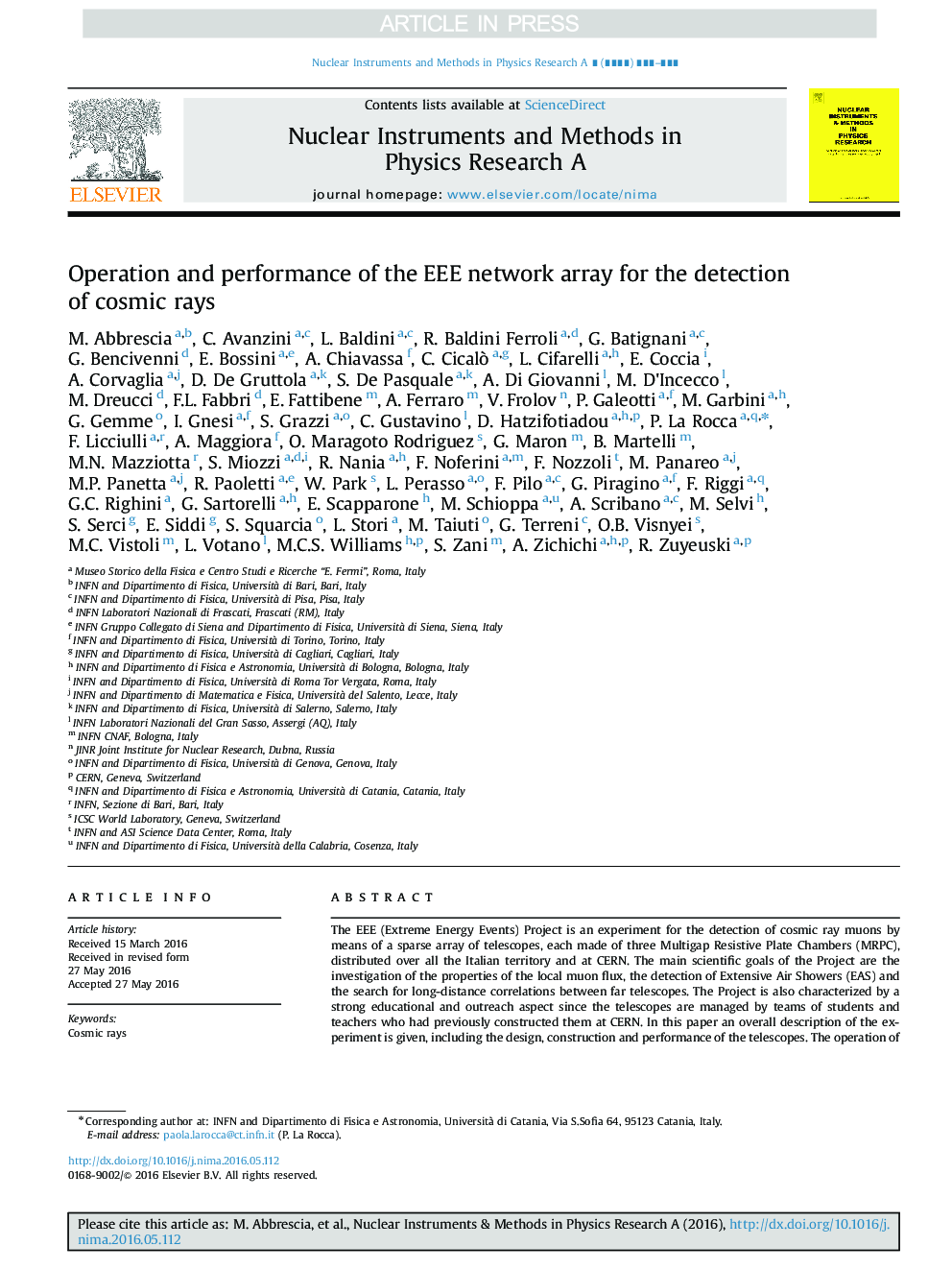| Article ID | Journal | Published Year | Pages | File Type |
|---|---|---|---|---|
| 5492894 | Nuclear Instruments and Methods in Physics Research Section A: Accelerators, Spectrometers, Detectors and Associated Equipment | 2017 | 4 Pages |
Abstract
The EEE (Extreme Energy Events) Project is an experiment for the detection of cosmic ray muons by means of a sparse array of telescopes, each made of three Multigap Resistive Plate Chambers (MRPC), distributed over all the Italian territory and at CERN. The main scientific goals of the Project are the investigation of the properties of the local muon flux, the detection of Extensive Air Showers (EAS) and the search for long-distance correlations between far telescopes. The Project is also characterized by a strong educational and outreach aspect since the telescopes are managed by teams of students and teachers who had previously constructed them at CERN. In this paper an overall description of the experiment is given, including the design, construction and performance of the telescopes. The operation of the whole array, which currently consists of more than 50 telescopes, is also presented by showing the most recent physics results.
Related Topics
Physical Sciences and Engineering
Physics and Astronomy
Instrumentation
Authors
M. Abbrescia, C. Avanzini, L. Baldini, R. Baldini Ferroli, G. Batignani, G. Bencivenni, E. Bossini, A. Chiavassa, C. Cicalò, L. Cifarelli, E. Coccia, A. Corvaglia, D. De Gruttola, S. De Pasquale, A. Di Giovanni, M. D'Incecco, M. Dreucci, F.L. Fabbri,
